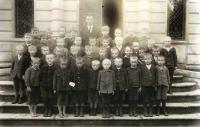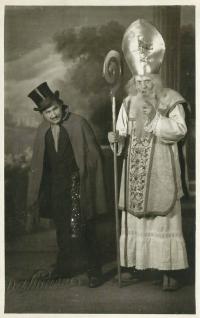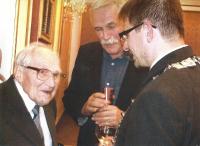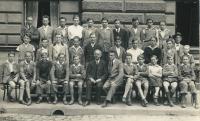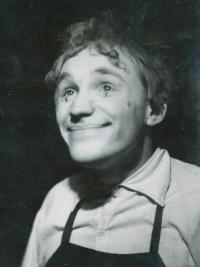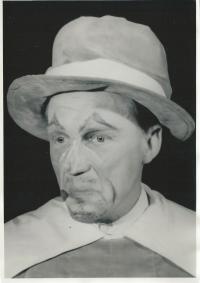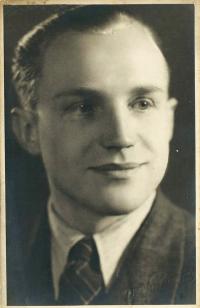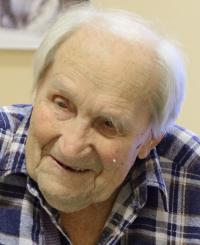Baptized by the Jizera River hundred years ago

Stáhnout obrázek
Miroslav Holas was born November 13, 1919 in Turnov. His parents owned a textile shop. Before WWII he was employed in a company in Prague owned by a Jewish family who did wholesale trade in textile. After the German occupation of Czechoslovakia he escaped from there in fear of being sent to do forced labour. For the rest of the war he worked in Turnov in steam vulcanization. His father‘s shop was confiscated in the 1950s and his father had to get a job as a non-skilled worker. Miroslav was actively engaged in theatre for his entire life. He refused to become a member of the Communist Party.
